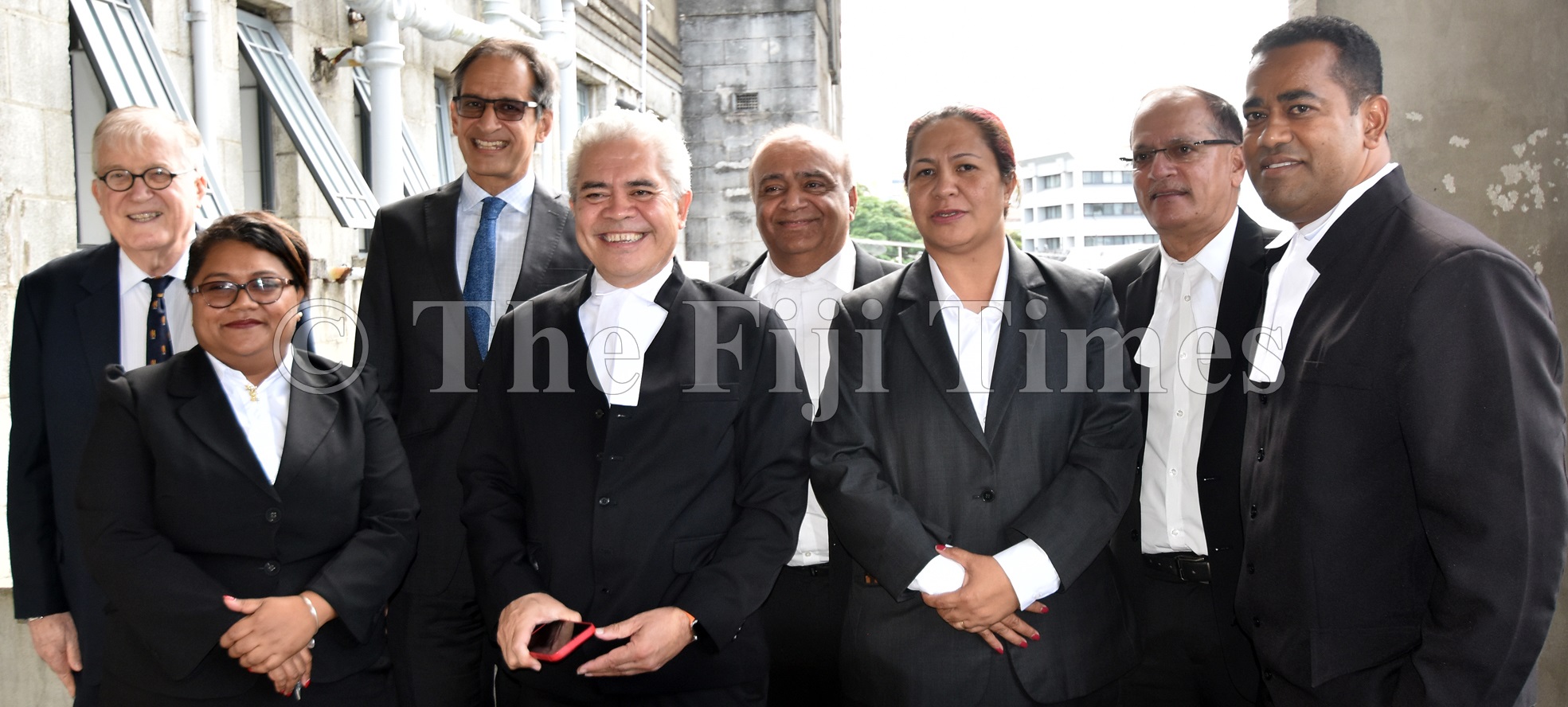What did Attorney-General Aiyaz Sayed-Khaiyum do to protect the courts in the four months between Richard Naidu’s alleged contemptuous Facebook post and the filing of the contempt of court proceedings against him?
This was the question posed by Suva lawyer Jon Apted in the High Court in Suva yesterday at a court hearing in the contempt of court case against Mr Naidu.
Mr Naidu has applied to set aside the contempt proceedings.
He is applying for orders to cross-examine Mr Sayed-Khaiyum as part of his application and that there be a full oral hearing on the application.
Mr Apted said it was very difficult to see how the allegedly contemptuous Facebook post, which made reference to two small typographical errors in a humorous way and referenced Government’s vaccination campaign, lowered the reputation of the courts.
Mr Apted said Mr Naidu’s application to set aside the proceedings contended that they were brought because Mr Naidu was a critic and political rival of Mr Sayed-Khaiyum.
“When you look at that, the four and a half months that it took, the absence of any evidence that (Mr Sayed-Khaiyum) took any other step to protect the courts by getting the judgment removed, corrected, getting this alleged Facebook post removed – this seriously raises the question of ‘what is his purpose?’,” he said.
Mr Apted said if Mr Sayed-Khaiyum was genuine about protecting the court, and worried that the existence and publicity of the court’s errors truly scandalised the court, he would have sought correction of the errors and written to ask the Pacific Islands Legal Information Institute (Paclii) to bring down the incorrect version or asked Mr Naidu to remove the post.
Mr Sayed-Khaiyum’s lawyer, Devanesh Sharma, said there was a lot of verbiage about Mr Sayed-Khaiyum’s motives and everything the two men had said about each other, but the post on Facebook by Mr Naidu was before the court.
He said he was not sure about Mr Naidu’s position because Mr Naidu had not filed an affidavit or taken a plea, although others had filed affidavits.
He also said Mr Naidu could say in his defence that the post was made in humour but that should be made at the proper time.
Instead, he said, Mr Naidu had filed one application after another. Mr Sharma asked where in the relevant High Court Rules Mr Sayed-Khaiyum could be cross-examined.
“Oral evidence is a choice the respondent (Mr Naidu) can make, but this is an argument I will reserve for a later date,” he said.
Mr Apted said Mr Naidu had a right under Order 38 of the High Court Rules and the Constitution to cross-examine Mr Sayed-Khaiyum, who had made the allegation against him. He also said the Constitution not only bound the court but the Attorney-General as well.
“The (Attorney-General) is exercising his powers as A-G, he’s a public officer,” Mr Apted said.
“In every step that he takes in these proceedings, through his counsel, he is bound to comply with the Constitution.”
The matter will be called on September 1 before Justice Nanayakkara for his ruling on Mr Naidu’s application.


